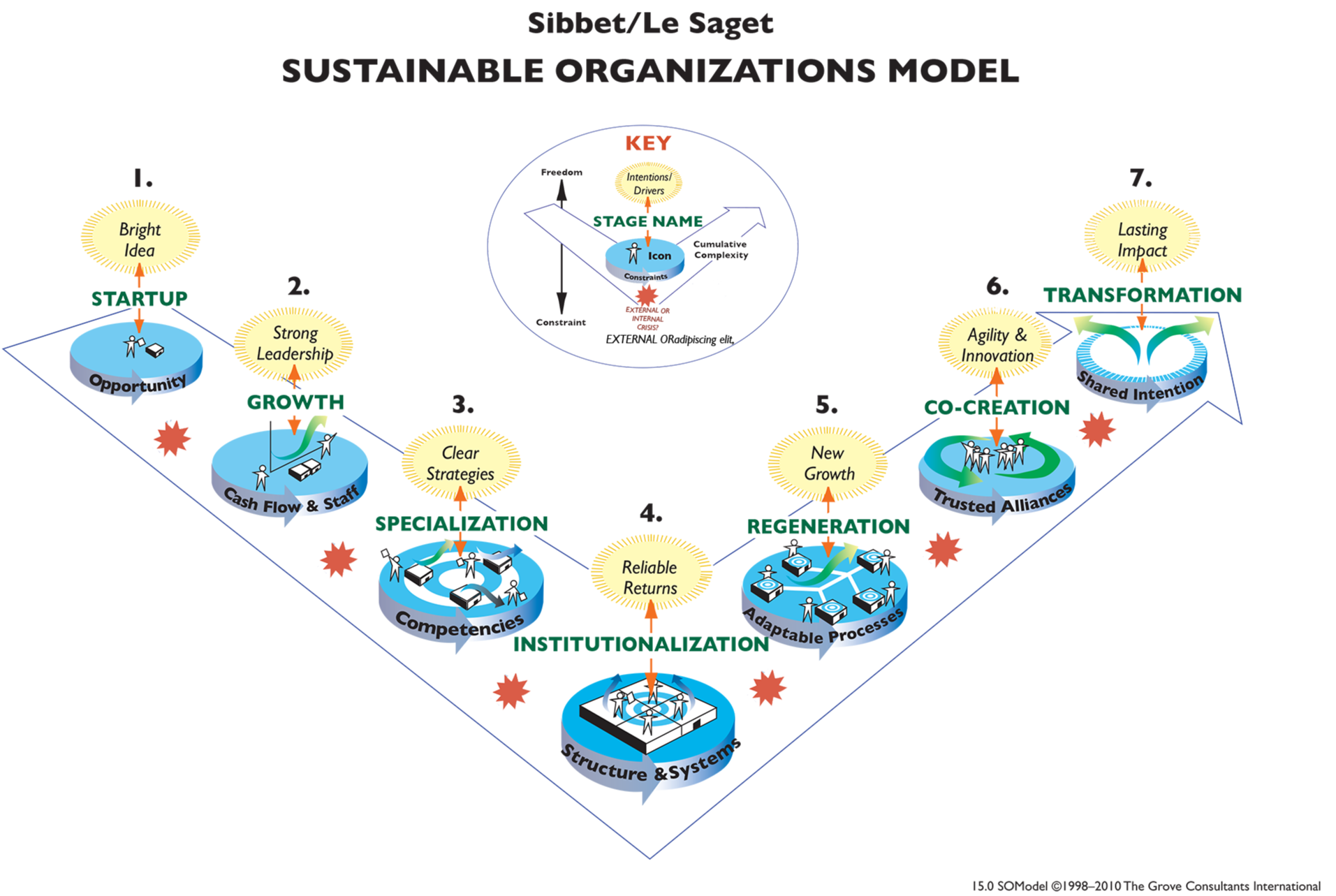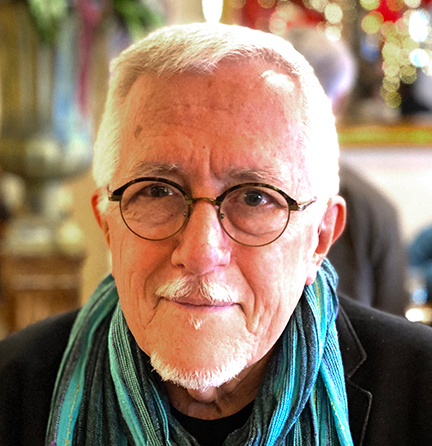ORGANIZATION DEVELOPMENT
FOR VISIONARIES
An Inquiry Into Sustainable Design
A GLEN 2022 Exchange Series
Two Sessions
Sept 26 and Oct 4, 2022
9:00-11:00 am PT and 6:00pm CET
The Sibbet/LeSaget Sustainable Organizations Model
For three decades The Grove Consultants International has been developing process leadership tools based on the Theory of Process articulated by Arthur M. Young. Most relevant to these times of organizational challenge and change is the Sustainable Organizations Model co-developed by David Sibbet, founder of The Grove, and his colleague from Paris, Meryem LeSaget in the 1990s. It has guided The Grove's system change work for years, but has not been shared widely. As the fragmentation and challenges of our times have impacted not only organizations but organizational consultants, David is feeling called to share these tools more widely through The GLEN. He hopes this systems design language can become a hopeful sourcecode for the evolution of new visionary organizations.
INTENTION
Few in The GLEN community would dispute that we are in a period of transformation change on this planet. Our assumption is that most organizations will need to rethink their ways of working, their intentions and values, and their relationship to people, the land and other cultures if we are to continue to thrive as a human species. In this effort those of us who lead change processes and consult to leaders on organization design are challenged. They need tools for working at a systemic level, and shared language for communicating about both possibilities and options.
The Sustainable Organizations Model (SOM) based on the Theory of Process could be to our next generation of consultants what unix was to MS-DOS.
While the basic distinctions in the framework are thoroughly tested, what each of the organizational archetypes would look like if they were operating within a triple bottom line value set is not so clear.
The purpose of this exchange series is to pool what we know about organizations that are embodying a visionary perspective in this regard. Sustainability does not mean static, but for any organization to be effective it must have enough coherence and stability that the work can be done and evolved effectively. What are the choices? Is there an underlying sourcecode that can help with design? Is there a teachable language that will allow stakeholder groups to grow organizations in a more sustainable way?
David believes there is and this series will be both exploring and challenging those assumptions.

The SOM characterizes seven organizational archetypes (think fundamental patterns of coherence) that can also combine to manifest as more complex organizational eco-systems. Each archetype is a pattern of coherence and understanding that then becomes a foundation for the following, more complex processes. The first four are widely understood foundational patterns for organization. But the three on the right side of the arc above reflect more evolved patterns. New technology and understandings about how expanded levels of awareness and interaction can transform social arrangements are making these choices possible in our time.
We will explore each in separate exchanges, each visually facilitated by David Sibbet. The process will support the GLEN Sourcecode Collaboration and eventually a GLEN book on Sustainable Organizations: Surviving the Sixth Extinction.
Key Questions for Exploration
-
What are the choices for coherence in organizations in times of great change?
-
How does living systems research inform new thinking about self-organizaton, emergence, hierarchy and heterarchy?
-
What are the predicable challenges to stability in the different archetypes?
-
What are the value sets that tend to be associated with each archetype?
-
How can transformations from one form to another be guided?
-
Can organizations thrive while embodying triple bottom line values of serving environment, equity, and economics in a balanced way.
-
How can we best reintroduce the importance of purpose and consciousness into a design world dominated by a materialistic paradigm?
- How could this way of thinking support processes of renewal & re-invention?

David Sibbet has been consulting on organizational and group process since 1977, basing his work on Arthur M. Young's Theory of Process, a brilliant evolutionary theory than reconciles the findings of physics and metaphysics. He founded The Grove Consultants International and with his partner, Gisela Wendling, co-founded the GLEN. Sharing about how we can change our mindsets to support sustainability is a central focus of his current work.
Exchange Design
These two session will provide you with a general orientation to the Sustainable Organizations Model, and explore several of the archetypes in depth. A general description will be followed by group dialogue sharing specific experiences that will illuminate the possibilities within that archetype. These sessions are meant to be dialogic and divergent, supporting participant engagement and relationship as much as working on the subject matter. The work will support the GLEN's Sourcecode Collaboration.
Session 1: STARTUP, GROWTH, SPECIALIZATION Sept 26, 9:00am PT
Session 2: REGENERATION, CO-CREATION & TRANSFORMATION Oct 4, 9:00am PT
All sessions will be recorded with notes and reference materials embedded in a set of course pages accessible to program participants in the future through the GLEN library.
Address
The GLEN
c/o The Grove Consultants International
1000 O'Reilly Avenue
San Francisco, CA 94129

